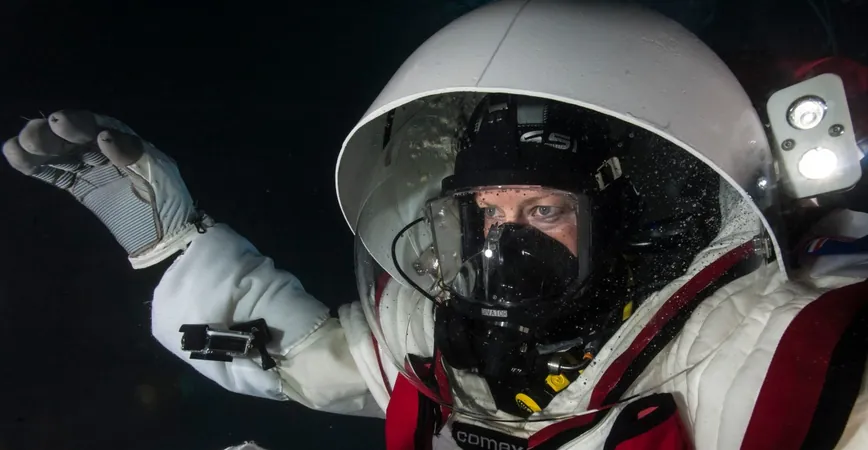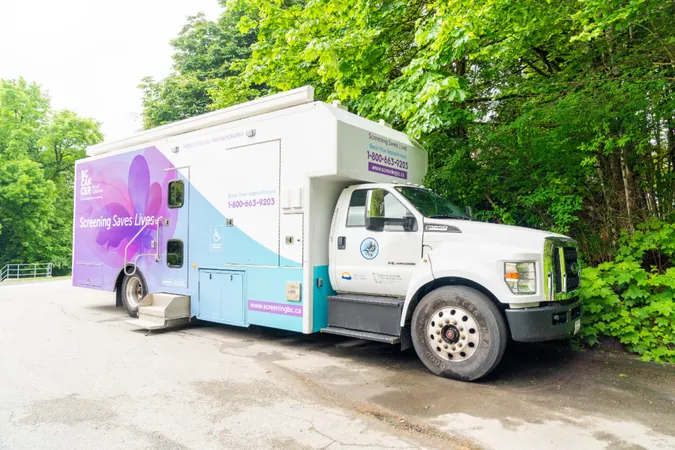
Are We Ready for Martian Adventure? Space Medicine May Hold the Key!
2025-09-03
Author: Charlotte
Mars: The Next Home for Humanity?
Imagine a future where humans call Mars home! As thrilling as this prospect is, we face a major hurdle: our bodies just aren’t prepared for the journey to space, especially not to the Red Planet. With climate change and other threats looming over Earth, the urgency to colonize Mars has never been greater.
The Struggles of Aspiring Astronauts
Shawna Pandya, a research astronaut and head of the Space Medicine Group at the International Institute for Astronautical Sciences, paints a grim picture for hopeful astronauts: many dreams are dashed due to medical disqualifications. Conditions like asthma, diabetes, and anxiety can keep space enthusiasts Earthbound. Simply put, astronauts must be in exceptional health to withstand the rigors of microgravity and space travel.
The Human Body in Space: A Double-Edged Sword
Space travel alters our bodies significantly. Conditions in microgravity can cause early-onset osteoporosis, muscle loss, and issues with insulin. Haig Aintablian, director of the UCLA Space Medicine Program, likens spaceflight changes to the physiological shifts seen in pregnancy. Therefore, specialized fields like space medicine are integral to ensuring astronauts' well-being.
NASA's Ambitions and the Call of Mars
NASA is on a mission to send humans to Mars by the 2030s. Mars is not only tantalizingly similar to Earth but may also hold clues to life beyond our planet. Pioneers like Elon Musk envision a self-sustaining city on Mars with a million residents by 2050, igniting widespread interest in interplanetary colonization.
Understanding Health Risks in Space
While we have valuable insights, much remains unknown about the health risks of long-term space exposure. NASA's renowned 2019 twins study revealed striking differences in the health of twin astronauts Scott and Mark Kelly: Scott's body reacted to the space environment in ways that raised concerns about cancer and cardiovascular health.
Challenges Beyond the Launchpad
Going to Mars is a challenge in itself. Missions could last three years, presenting unique dangers like radiation exposure and limited emergency medical support. Crew members will require all their supplies, and once they step foot on Mars, they’ll face life without the immediate aid of Earth-based resources.
The Intervention of Space Medicine
Fortunately, advances in space medicine offer hope. Programs like UCLA's space nursing initiative are on the rise, harnessing telemedicine to support astronauts. With AI integration, scientists aim to train astronauts in medical emergencies and potentially provide real-time guidance during critical situations.
The Future of Healthcare in Space
As we prepare for human settlement in space, a focus on diverse medical needs, including the effects of microgravity on reproduction, will be essential. NASA's upcoming simulations and studies will help us uncover how isolation and hostile environments impact well-being.
Investing in Space Health: A Win for Earth?
Critics of space health research often question its value given Earth's pressing issues. However, countless breakthroughs in medical technology—ranging from remote health monitoring to imaging advances—trace their origins back to space studies, benefiting life on our planet.
New Frontiers in Medical Research
As we delve into space medicine, life sciences are beginning to thrive. From personalized treatments emerging from organoids to accelerated cancer research, the possibilities are endless. Space isn’t just an adventure; it holds the keys to revolutionary healthcare innovations!
Conclusion: A New Era Awaits
As we stand on the brink of a new era of interplanetary exploration, the role of space medicine will be crucial. With ongoing research and innovative technologies, we may one day answer that age-old question: can we truly thrive in the vast, uncharted realms of space?









 Brasil (PT)
Brasil (PT)
 Canada (EN)
Canada (EN)
 Chile (ES)
Chile (ES)
 Česko (CS)
Česko (CS)
 대한민국 (KO)
대한민국 (KO)
 España (ES)
España (ES)
 France (FR)
France (FR)
 Hong Kong (EN)
Hong Kong (EN)
 Italia (IT)
Italia (IT)
 日本 (JA)
日本 (JA)
 Magyarország (HU)
Magyarország (HU)
 Norge (NO)
Norge (NO)
 Polska (PL)
Polska (PL)
 Schweiz (DE)
Schweiz (DE)
 Singapore (EN)
Singapore (EN)
 Sverige (SV)
Sverige (SV)
 Suomi (FI)
Suomi (FI)
 Türkiye (TR)
Türkiye (TR)
 الإمارات العربية المتحدة (AR)
الإمارات العربية المتحدة (AR)